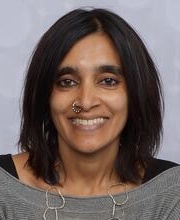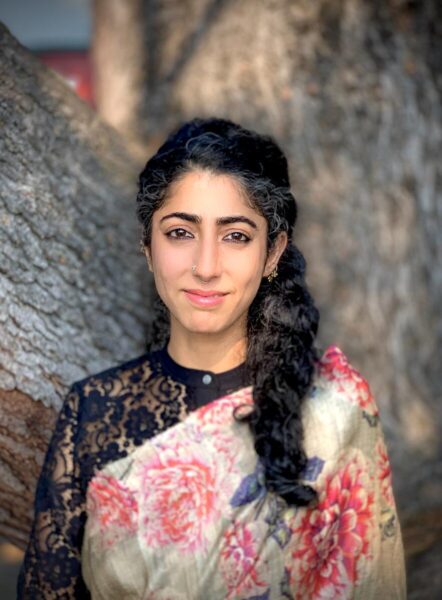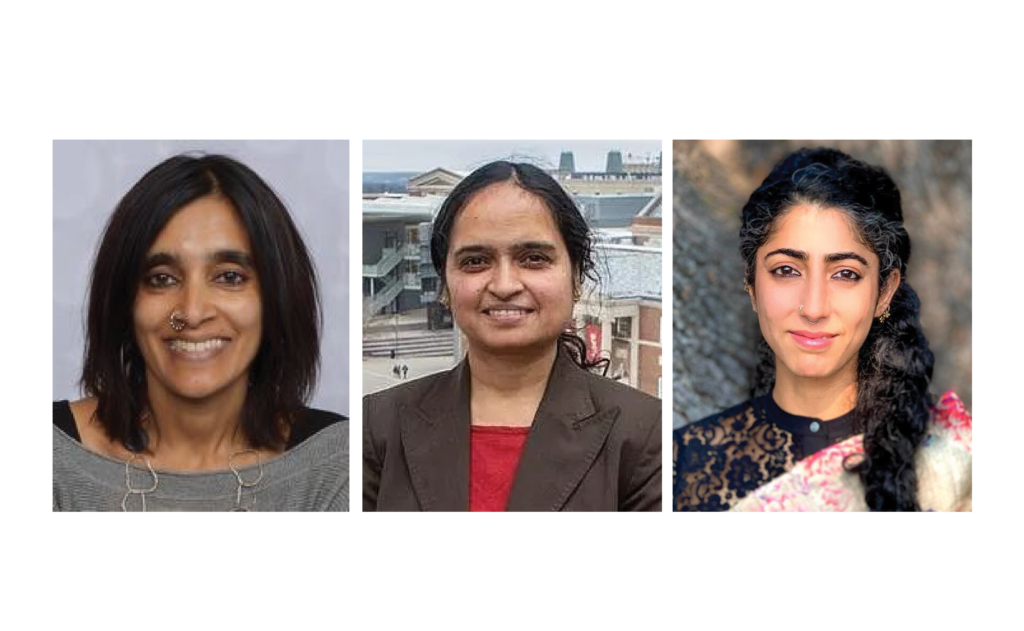Please register to join us on Monday, April 22 at 3:30pm for a panel on “Caste, Education, and Social Struggle in Modern India,” featuring Ajantha Subramanian, Professor of Anthropology at the CUNY Graduate Center, and Shailaja Paik, the Charles P. Taft Distinguished Professor of History and Affiliate in Women’s, Gender, and Sexuality Studies and Asian Studies at the University of Cincinnati. Moderated by Aarti Sethi, Assistant Professor at the Department of Anthropology at UC Berkeley, and 2023-2024 Matrix Faculty Fellow.
Co-sponsored by the UC Berkeley Program in Critical Theory, Department of English, Global Metropolitan Studies, The Center for Race and Gender, Institute of South Asian Studies, and Department of Anthropology.
Abstract
Perhaps no other arena in modern India is the site of such charged political and social contest as education. India is the most unequal society in the world wherein the hegemonic capture of socio-economic power by an oppressor savarna/“upper caste” minority has operated through violent control over knowledge, and the exclusion of the vast majority of oppressed Dalit-Bahujan/“lower-caste” communities from basic access to education. The power of education as a route out of intergenerational oppression was recognized by Dr. B.R. Ambedkar, the architect of the Indian constitution, in his exhortation, “Educate! Organize! Agitate!”, and operationalized through affirmative action policies by reserving seats in educational institutions, that sought to democratize access to educational institutions of historically marginalized communities. Savarna/ “upper-castes” have responded by mobilizing a poisonous discourse of “merit” against affirmative action. Dalit and oppressed caste students are routinely subjected to humiliation and aggression, marked out as “undeserving” students, by their “upper-caste”/savarna classmates. This routinized humiliation is most tragically exemplified in the spate of suicides by Dalit and oppressed caste students in elite institutions of higher learning such as the IITs.
However caste discrimination is not sequestered in India. Fifty years of Indian immigration to the United States has operationalized caste as a virulent transnational structure of oppression. While Indian Americans represent themselves as “caste-less”, and caste as a quaint phenomenon of the past that has been left behind in India, caste is alive, well, and thriving in the United States. The CISCO case brought by a Dalit employee against his upper-caste employers, forcefully exploded the myth of castelessness in Silicon Valley, making caste a question of public discussion.
In the past three years anti-caste activists and scholars, and their allies, have succeeded in drawing attention to caste discrimination on US campuses. This struggle has succeeded in many universities, such as Brandies University, Brown University, and the University of California State University system, adding caste as a protected category in anti-discrimination codes. This panel reflects on, and draws linkages between, struggles over education in India and the transitional histories of caste struggle in the United States, with the hope that, through rigorous critical engagement with structures of oppression and the discourses they engender, it may be possible to build a more just and egalitarian future.
Panelists
 Ajantha Subramanian is Professor of Anthropology at the CUNY Graduate Center. She is a historical anthropologist whose work addresses the historicity and political economy of caste. She is particularly interested in the incorporation of caste into projects of governance and capitalist transformation, and how these projects in turn have shaped the social relations of caste. Her work also considers caste as an instrument of classification and management that has been imagined and deployed in relation to other categories of class, religion, and race. Her first book, Shorelines: Space and Rights in South India (Stanford University Press, 2009; Yoda Press, 2013), chronicles the struggles for resource rights by Catholic fishers on India’s southwestern coast, with a focus on how they have used spatial imaginaries and practices to constitute themselves as political subjects. Her second book, The Caste of Merit: Engineering Education in India (Harvard University Press, 2019), analyzes meritocracy as a terrain of caste struggle in India and its implications for democratic transformation. She is currently working on two projects, the first on Dalit politics in a gold mining company town in South India and the second on the transnationalization of caste in the United States.
Ajantha Subramanian is Professor of Anthropology at the CUNY Graduate Center. She is a historical anthropologist whose work addresses the historicity and political economy of caste. She is particularly interested in the incorporation of caste into projects of governance and capitalist transformation, and how these projects in turn have shaped the social relations of caste. Her work also considers caste as an instrument of classification and management that has been imagined and deployed in relation to other categories of class, religion, and race. Her first book, Shorelines: Space and Rights in South India (Stanford University Press, 2009; Yoda Press, 2013), chronicles the struggles for resource rights by Catholic fishers on India’s southwestern coast, with a focus on how they have used spatial imaginaries and practices to constitute themselves as political subjects. Her second book, The Caste of Merit: Engineering Education in India (Harvard University Press, 2019), analyzes meritocracy as a terrain of caste struggle in India and its implications for democratic transformation. She is currently working on two projects, the first on Dalit politics in a gold mining company town in South India and the second on the transnationalization of caste in the United States.
 Shailaja Paik is the Charles P. Taft Distinguished Professor of History and Affiliate in Women’s, Gender, and Sexuality Studies and Asian Studies at the University of Cincinnati. She specializes in the social, intellectual, and cultural history of Modern India. Her first book Dalit Women’s Education in Modern India: Double Discrimination (Routledge, 2014) examines the nexus between caste, class, gender, and state pedagogical practices among Dalit (“Untouchable”) women in urban India. My second book The Vulgarity of Caste: Dalits, Sexuality, and Humanity in Modern India (Stanford University Press, 2022) analyzes the politics of caste, class, gender, sexuality, and popular culture in modern Maharashtra.
Shailaja Paik is the Charles P. Taft Distinguished Professor of History and Affiliate in Women’s, Gender, and Sexuality Studies and Asian Studies at the University of Cincinnati. She specializes in the social, intellectual, and cultural history of Modern India. Her first book Dalit Women’s Education in Modern India: Double Discrimination (Routledge, 2014) examines the nexus between caste, class, gender, and state pedagogical practices among Dalit (“Untouchable”) women in urban India. My second book The Vulgarity of Caste: Dalits, Sexuality, and Humanity in Modern India (Stanford University Press, 2022) analyzes the politics of caste, class, gender, sexuality, and popular culture in modern Maharashtra.
 Aarti Sethi (moderator) is Assistant Professor at the Department of Anthropology at UC Berkeley, and 2023-2024 Matrix Faculty Fellow. She is a socio-cultural anthropologist with primary interests in agrarian anthropology, political-economy, and the study of South Asia. Her research interests broadly focus on the transformation of rural life-worlds and agrarian capitalism. She is currently working on two projects. The first is a book that examines cash-crop agricultural economies to understand how monetary debt undertaken for transgenic cotton-cultivation transforms intimate, social, and productive relations in rural society. Her second project called Republic of Readers explores the relationship between reading literacy and libraries as sites of postcolonial democracy and citizenship.
Aarti Sethi (moderator) is Assistant Professor at the Department of Anthropology at UC Berkeley, and 2023-2024 Matrix Faculty Fellow. She is a socio-cultural anthropologist with primary interests in agrarian anthropology, political-economy, and the study of South Asia. Her research interests broadly focus on the transformation of rural life-worlds and agrarian capitalism. She is currently working on two projects. The first is a book that examines cash-crop agricultural economies to understand how monetary debt undertaken for transgenic cotton-cultivation transforms intimate, social, and productive relations in rural society. Her second project called Republic of Readers explores the relationship between reading literacy and libraries as sites of postcolonial democracy and citizenship.
